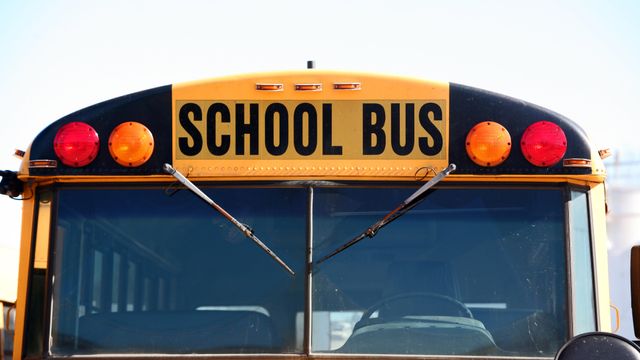Inspectors find bad brakes, other dangers on NC school buses
On any given day, nearly 1 out of 5 Wake County public school buses should not be on the road, according to state inspectors. But that's not the worst rate among local school systems. In some nearby counties, inspectors determined that more than half of the buses they reviewed were not fit for the road.
Posted — UpdatedThe WRAL Investigates team reviewed the most recent inspection reports for 20 local school systems and found that bad brakes, leaking fuel lines and defective stop arms were just some of the problems state inspectors found on school buses.
“(I’m) pretty disgusted,” said parent Kellie Hicks, whose 6-year-old daughter Angelina rides bus 176.
That bus – 176 – hauls students to and from Butner-Stem Elementary School every day and had the worst state inspection score in the area with 218 defect points. The average score in the eastern part of the state is closer to 40 points.
Among the biggest problems with bus 176 is that it failed two different brake inspections and had a leaking fuel line. After that bad safety report, Granville County Schools’ spokesman Stan Winborne says the school system made repairs and pushed buses up the priority list by adding maintenance technicians and increasing their training.
“We were shocked, extremely disappointed, very concerned … We felt it was absolutely unacceptable,” Winborne said. “We’re not going to be satisfied until our buses are 100 percent clean.”
North Carolina has one of the more rigorous school bus inspection processes in the nation. The state randomly inspects 10 percent of buses in each school system every year, and counties are responsible for looking at buses at least every 30 days.
Derek Graham leads the statewide school bus inspection program for the Department of Public Instruction. North Carolina's detailed maintenance requirements help make it a national leader in bus safety. While the state conducts annual inspections, it ultimately counts on local schools to keep buses safe.
“Somebody (in Granville County) hasn’t been paying attention, because you don’t accumulate that many defect points in that short amount of time,” Graham said. “I am concerned if the situation goes on like it has.”
Granville County has not reported any accidents related to the maintenance issues, and state inspectors say they don’t believe students are in imminent danger. But Winborne says the school system will do better and has asked the state to do surprise re-inspections.
“There's no excuse for it, and like I said, we feel like we've taken measures so that that won't happen again,” he said. “It's a difficult job, but it's one we can't compromise on because we're talking about the safety of our children.”
"Our students' safety is of paramount importance, which is why our own mechanics routinely and thoroughly inspect every bus in the fleet," a Wake County public schools' spokeswoman said in a statement. "Any bus with an issue is parked until it is repaired. With 100,000 miles of stop-and-go driving daily, wear-and-tear is inevitable. We go the extra mile to keep the buses repaired and running."
In Charlotte, a school bus went up in flames because of an electrical fire. No students were hurt in that case, but it prompted state inspectors to send out a warning to all school systems about potential wiring problems.
Parents like Hicks say they remain skeptical, especially after a recent incident when bus 176 had to do a U-turn to let off her daughter because the stop arm wasn't working.
“I don’t think I want to ever wake up or be called from work, saying there’s been an accident because of failures on the bus,” Hicks said.
Map: School bus inspection reports by county
• Credits
Copyright 2024 by Capitol Broadcasting Company. All rights reserved. This material may not be published, broadcast, rewritten or redistributed.






